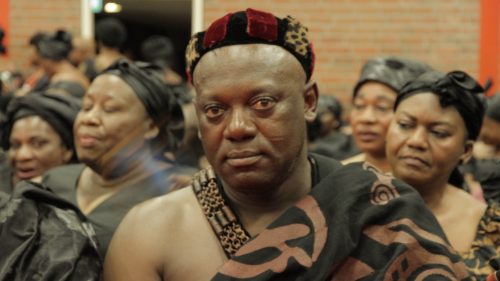CHRONICLE OF A MODERN KING - Kees-Jan Husselman
Directors statement
With this film I want to tell a story about holding on to a cultural identity in a fast changing, modern world. After a long period of colonial oppression the Sub-Saharan African tribal culture is making a revival. Even in the suburbs of Amsterdam we find a vibrant scene of African traditions. The contrast between the Ashanti community here and the urban western environment can’t be bigger. Trying to uphold such a culture in these circumstances inevitably leads to difficulties.
During my childhood I lived in Tanzania and Malawi before moving to The Nederlands in my teens. As a 10-year old boy I used to go BMX-ing on a deserted piece of land behind our house. There I was confronted with men from neighbouring villages, dressed in intimidating costumes, doing a ritual dance to chase away evil spirits. Since then I have been fascinated by the pre-scientific, holistic and fanciful worldview of African tribal culture. During my filmstudies this has already led to film projects in Zambia and South Africa.
Since 2012 I regularly travel to Ghana because my sister moved there. Never have I seen people hold on to their traditions with so much conviction as the Ashanti’s in their regional capitol Kumasi. Crowds go ecstatic when their king Asantehene Otumfuo Osei Titi II appears in public. The Asantehene walks a fine line between his old culture and modernity. He is schooled in England and a devout Christian. But he also employs several traditional priests that perform rituals at his palace. He upholds the culture of his tribe in a very convincing way. The Ashanti king and queen in Amsterdam also have to uphold their cultural identity, but modern society in Amsterdam puts them under pressure to do so.
In this movie I want the viewer to become submerged in a vibrant world of traditional costumes, expressive dances and spiritual experiences that I know so well from my childhood. But I also want to make the huge contrast with the western world outside this closed community palpable. Through the stories of the Ashanti king and queen in Amsterdam we see how people struggle for power and status, legitimised by a traditional culture whilst living on a modern society.
Kees-Jan Husselman





